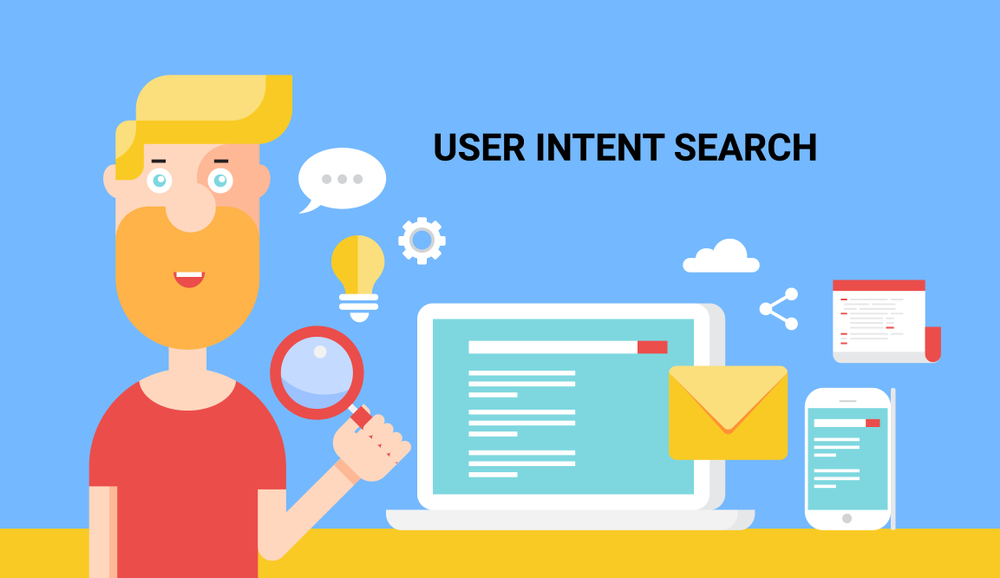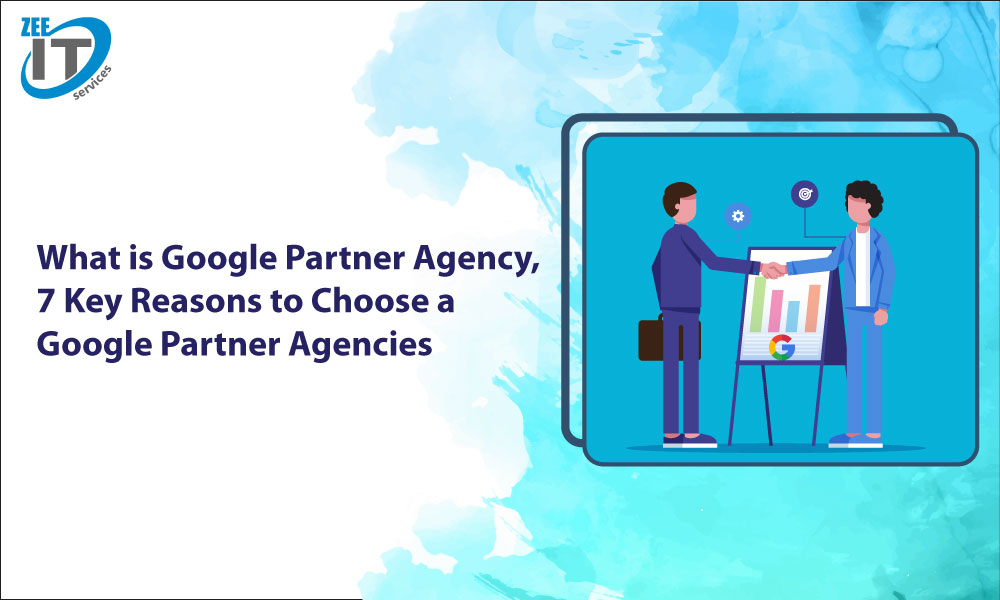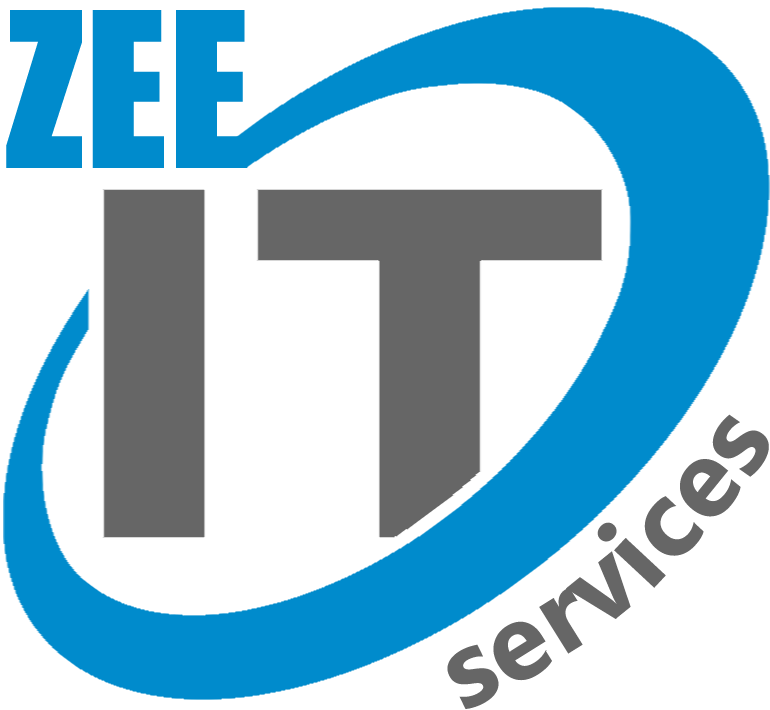
Aug 3, 2023 | Blogs
Search engine optimization, or SEO, is a crucial component of online advertising that helps websites rank higher on search engine result pages (SERPs). Top SEO gurus’ tactics are always changing to take into account new algorithms and recommended practices. In this thorough guide, we’ll delve into the realm of SEO and expose the methods that the best professionals in the field do to deliver excellent results to their clients. Furthermore, We’ll cover everything, from link building to content marketing to on-page optimization. So saddle up and get ready to discover the greatest SEO gurus’ secrets!
Unveiling the Strategies of Top SEO Experts
Search Engine Optimization (SEO) is a critical aspect of digital marketing, and mastering it requires a combination of knowledge, experience, and creativity. In today’s digital era search engines have become the primary gateway for people to access information, products, and services. If your website doesn’t appear on the first page of search results, you are likely missing out on a significant chunk of potential traffic and customers. Effective SEO is not just about ranking high; it’s also about providing value to users and establishing authority and trust with search engines. In addition, By optimizing your website according to the latest SEO best practices, you can drive targeted organic traffic, improve user experience, and build a robust online presence.
Who is an SEO expert?
A professional that specializes in optimizing websites and online content to increase its visibility and rankings on search engine results pages (SERPs) is known as an SEO expert, also known as a search engine optimization specialist. Their major objective is to use numerous SEO best practices and tactics to enhance organic (unpaid) traffic to a website. Moreover, SEO experts possess a deep understanding of how search engines like Google, Bing, and Yahoo operate. They stay updated with the ever-evolving algorithms and guidelines set by search engines to ensure their strategies align with the latest SEO standards. This enables them to help websites achieve higher rankings and reach a wider audience. Furthermore, We’ll look at the top 10 SEO experts’ tactics in the part after that, who have significantly advanced the field.
Top 10 SEO experts in the world:
Brian Dean
The creator of Backlinko, Brian Dean, is a recognized SEO professional who uses white-hat link-building techniques. Through his data-driven and practical approach, Brian, who has experience in search engine optimization, has assisted countless companies in enhancing their online presence. Moreover, His “Skyscraper Technique” has become an essential component in SEO content development, emphasizing the generation of high-quality material that beats competitors.
Social link:
Website: Backlinko.com
Twitter ID: @BrianEDean
Rand Fishkin
The names Rand Fishkin, co-founder of Moz and SparkToro, and SEO go hand in hand. He is an engaging public speaker and a top specialist educator. Rand stresses the need of developing user-friendly websites and useful content for both users and search engines. For SEO fans, his “Whiteboard Friday” series on Moz is a well-liked resource.
Social link:
Website: Sparktoro.com
Twitter ID: @randfish
Neil Patel
Co-founding businesses including Crazy Egg, Kissmetrics, and Ubersuggest, Neil Patel is an entrepreneur, marketer, and SEO guru. He has built profitable enterprises and emerged as a key influencer in the sector because of his extensive knowledge of SEO and digital marketing. Neil emphasizes data-driven solutions and is an advocate for ongoing testing and improvement.
Social link:
Website: NeilPatel.com
Twitter ID: @neilpatel
Danny Sullivan
Danny Sullivan, now working with Google, has been a prominent figure in the SEO world. While serving as the co-founder of Search Engine Land and Marketing Land, he provided valuable insights into search engine algorithms and SEO best practices. His expertise lies in demystifying complex SEO concepts and making them accessible to a broader audience.
Social link:
Website: DannySullivan.com
Twitter ID: @dannysullivan
Matt Cutts
Matt Cutts is a former software engineer at Google and the former head of Google’s Webspam team. During his tenure, he played a pivotal role in shaping Google’s search algorithms. Known for his engaging blog, Matt provided regular updates on algorithm changes, helping webmasters adapt their SEO strategies accordingly.
Social link:
Website: mattcutts.com
Twitter ID: @mattcutts
Barry Schwartz
CEO of RustyBrick and prominent SEO analyst Barry Schwartz is also the creator of the well-known SEO news website Search Engine Roundtable. He is a useful resource for the SEO community due to his knowledge of SEO and enthusiasm for informing the community on search engine improvements.
Social link:
Website: RustyBrick.com
Twitter ID: @rustybrick
Stephan Spencer
The co-author of “The Art of SEO,” Stephan Spencer, is an acknowledged SEO authority around the world. Through the use of cutting-edge optimization tactics, he has a wealth of technical SEO experience and has assisted countless businesses in raising their search ranks.
Social link:
Website: stephanspencer.com
Twitter ID: @sspencer
Cyrus Shepard
A seasoned SEO expert noted for his emphasis on on-page optimization and user experience is Cyrus Shepard. He has collaborated with a number of businesses to create SEO plans that complement their brands and target audiences.
Social link:
Website: zyppy.com
Twitter ID: @CyrusShepard
Joost De Valk
The creator and CEO of Yoast, a well-liked WordPress SEO plugin, is Joost De Valk. His areas of competence are content organization and on-page optimization. The development of SEO resources and tools that enable website owners to raise their search ranks is Joost’s passion.
Social link:
Website: Yoast.com
Twitter ID: @jdevalk
Craig Campbell
With years of experience in the field, Craig Campbell is a well-known SEO trainer and professional SEO consultant. His ability to impart his knowledge through lessons and videos and his commitment to providing useful and effective SEO advice have earned him considerable respect.
Social link:
Website: CraigCampbellSEO.com
Twitter ID: @craigcampbell03
Strategies of Top SEO Experts
On-Page Optimization: The Foundation of SEO
On-page optimization involves making strategic changes directly on your website to improve its search engine visibility and user experience. It includes various elements such as keyword research, meta tags, content optimization, URL structure, and internal linking. Let’s explore some key on-page optimization strategies:
Keyword Research: Unveiling the Most Relevant Terms
Comprehensive Keyword research is the cornerstone of any successful SEO campaign. Top SEO experts go beyond targeting generic keywords and focus on long-tail and LSI keywords as well. Long-tail keywords are more specific and have lower competition, making it easier to rank for them. Moreover, LSI (Latent Semantic Indexing) keywords are semantically related to the main keyword and help search engines understand the context of your content.
Engaging Content: The King of SEO
Content is the backbone of SEO. High-quality, informative, and engaging content not only attracts users but also earns backlinks from other authoritative websites. Top SEO experts emphasize creating high-quality content that answers users’ queries, addresses their pain points, and adds value to their lives.
Optimize Meta Tags: Your Website’s First Impression
Meta tags, such as title tags and meta descriptions, play a crucial role in how your website appears on search engine result pages. Moreover, Craft compelling meta tags that include the target keyword and entice users to click through to your website.
User-Friendly URLs: Simplify Navigation
Short, descriptive, and keyword-rich URLs are preferred by both users and search engines. Additionally, Avoid using complex URLs with random numbers and characters. Instead, create URLs that give users a clear idea of what the page is about.
Internal Linking: Building a Strong Web of Connectivity
Internal linking helps search engines understand the structure of your website and the hierarchy of its pages. It also distributes link authority throughout your site, boosting the ranking potential of individual pages.
Technical SEO: Ensuring Smooth Crawling and Indexing
Technical SEO focuses on the backend aspects of your website, ensuring that search engine bots can crawl, index, and understand your content. A technically sound website enhances user experience and makes it easier for search engines to rank your pages. Furthermore, Let’s explore some essential technical SEO strategies:
Site Speed Optimization:
Site speed is a critical ranking factor, and top SEO experts know that a slow-loading website can lead to higher bounce rates and lower rankings. Moreover, Compress images, leverage browser caching, and optimize code to improve your site’s loading time.
Mobile-Friendly Design:
With the majority of internet users accessing the web via mobile devices, having a mobile-friendly website is not an option but a necessity. Responsive design ensures that your site looks and functions seamlessly on various devices.
SSL Security:
Having an SSL certificate not only encrypts data transmitted between users and your website but also adds a layer of trust.Additionally, Websites with SSL certificates are favored by search engines, which can positively impact your rankings.
XML Sitemap:
An XML sitemap is a roadmap that helps search engine crawlers navigate through your website and discover all its pages. Moreover, Keep your sitemap updated and submit it to search engines to improve the indexation of your site.
Fixing 404 Errors:
Broken links can negatively affect user experience and harm your SEO efforts. Regularly check for broken links on your website and fix them promptly to ensure a smooth browsing experience.
Off-Page Optimization:
Off-page optimization involves activities that take place outside your website but have a significant impact on its rankings and authority. Building high-quality backlinks from reputable websites is a key off-page strategy. Furthermore, Let’s explore some effective off-page optimization techniques:
Link Building:
Top SEO experts focus on acquiring links from authoritative and relevant websites. They use outreach strategies, guest posting, and content promotion to earn backlinks that boost their website’s authority.
Social Media Marketing:
Social media sites offer a great way to interact with your audience, publish insightful content, and advertise your website. Additionally, Utilize social media to interact with your fans, promote sharing, and raise brand awareness.
Influencer Marketing:
Your reach can be increased and your website can be exposed to a wider audience by working with influencers and sector leaders. Influencers can promote your content to their following and drive worthwhile traffic to your website.
Local SEO:
Local SEO is crucial for businesses with a physical presence. Optimize your Google My Business profile, ensure consistent NAP (Name, Address, Phone Number) information, and engage with local directories and citations.
Content Marketing:
Content marketing goes hand in hand with SEO. It involves creating valuable and relevant content to attract and retain your target audience. Top SEO experts leverage content marketing to build authority, drive traffic, and generate leads. Furthermore, Here are some content marketing strategies used by experts:
Blogging:
Using a blog to share your knowledge, interact with readers, and update your website with new material is a powerful strategy. Adapt your blog entries to the interests and requirements of your target audience in order to make them interesting and shareable.
Video Marketing:
Video content has become increasingly popular, with users preferring visual formats over text. Create engaging and informative videos to showcase your products, explain complex concepts, and share valuable insights.
Infographics and Visual Content:
Moreover, Infographics and visual content present information in a visually appealing and easy-to-understand format. They are highly shareable and can attract links from other websites, boosting your SEO efforts.
Frequently Asked Questions
What is the role of SEO in digital marketing?
SEO plays a crucial role in digital marketing by improving a website’s visibility on search engine result pages. It helps businesses attract organic traffic, enhance user experience, and build authority and trust.
Why are long-tail keywords important in SEO?
Long-tail keywords are essential in SEO because they are more specific and have lower competition. Moreover, Targeting long-tail keywords allows websites to rank for niche topics and attract highly relevant and engaged visitors.
How do top SEO experts stay updated with algorithm changes?
Leading industry websites are constantly followed, conferences are attended, and online forums are frequented by top SEO experts to stay current. Additionally, In order to comprehend the effects of algorithm adjustments, they also run their experiments and analyze the data.
What are the best practices for link building?
The best practices for link building include earning links from authoritative and relevant websites, avoiding spammy practices, focusing on quality over quantity, and using diverse anchor text.
Can social media impact SEO?
While social media signals themselves may not directly impact SEO rankings, social media can indirectly influence SEO through increased brand visibility, content sharing, and potential backlinks.

Jul 17, 2023 | Blogs
In the ever-evolving world of search engine optimization (SEO), understanding user intent is crucial for effective keyword targeting. Gone are the days of simply stuffing web pages with keywords in hopes of ranking high in search engine results. Today, search engines prioritize delivering the most relevant and valuable content to users based on their search queries. This is where user intent comes into play. By deciphering the intent behind user searches, website owners and SEO professionals can optimize their content to meet the needs of their target audience and improve their search engine rankings.
What is User Intent?
The fundamental goal or motive behind a user’s search query is referred to as user intent. It goes beyond the specific keywords used and delves into the user’s desired outcome or information. By understanding user intent, businesses can provide more relevant and targeted content to meet users’ needs.
Importance of User Intent in SEO
User intent plays a pivotal role in SEO for several reasons:
Higher Relevance and User Satisfaction
Aligning content with user intent ensures that the information provided directly addresses what users are looking for. This relevance increases user satisfaction, as they can find the answers or solutions they need quickly and easily. By delivering valuable high-quality content that matches user intent, businesses can build trust and credibility with their audience.
Improved Search Engine Rankings
Search engines like Google aim to deliver the most relevant and useful results based on user intent. Websites that effectively optimize their content to align with user intent are more likely to rank higher in search engine results pages (SERPs). This alignment indicates to search engines that the content is valuable and worth showcasing to users.
Better Conversion Rates
User intent-driven content has a higher chance of drawing users who are actively looking for a solution or making a transaction. Businesses can boost conversion rates by addressing their particular demands and directing customers through the sales funnel. Whether it’s making a purchase, signing up for a newsletter, or completing a contact form, consumers are more likely to perform the intended action when they find the content they were looking for.
User Intent and Keyword Targeting
One of the core components of SEO is keyword targeting. Increasing a website’s availability in search engine results entails choosing and optimizing certain keywords. Targeting keywords alone is no longer enough, though. When choosing and optimizing keywords for SEO, it is crucial to take user intent into account. By identifying the different types of user intent, we can categorize keywords accordingly and tailor our content to match each intent. Let’s explore the different types of user intent and how they influence keyword targeting.
Types of User Intent
Informational Intent
Informational intent refers to users seeking information or answers to specific questions. These searches often begin with question words like “how,” “what,” “why,” or “where.” For example, a user searching for “How to bake a cake” has an informational intent.
Navigational Intent
Navigational intent occurs when users are looking for a specific website or web page. These searches are often branded and indicate that the user is already familiar with the website they want to visit. For example, a user searching for an “Instagram login” has a navigational intent.
Transactional Intent
Users with transactional intent are those who are prepared to make a purchase or do a particular action. These queries frequently contain the terms “buy,” “order,” or “download.” As an example, a user who searches for “buy iPhone X online” has a transactional intent.
Commercial Investigation Intent
Commercial investigation intent occurs when users are in the research phase of their buying journey. They are exploring different options and comparing products or services. These searches often include terms like “best,” “top-rated,” or “review.” For example, a user searching for “best laptops for gaming” has a commercial investigation intent.
How to Identify User Intent
For efficient SEO and keyword targeting, determining user intent is essential. Here are several techniques for figuring out user intent:
Analyzing Keyword Search Patterns
Businesses might learn more about customers’ intentions by looking at the terms they frequently employ in their searches. Search volume, related phrases, and user behavior can all be found via tools like Google Keyword Planner, Google Trends, and other keyword research tools.
Examining SERP Features
Analyzing the search engine results pages can offer valuable clues about user intent. Paying attention to featured snippets, “People also ask” sections and related searches can help businesses understand what users are looking for and tailor their content accordingly.
Leveraging Data and Analytics
User intent can be better understood by utilizing data from website analytics and user behavior. Businesses can assess if their content successfully fulfills user intent by looking at user engagement data like bounce rate, time on page, and conversion rates.
Aligning Keyword Targeting with User Intent
To effectively target user intent with keywords, businesses should follow these strategies:
Conducting Keyword Research
Thorough keyword research helps identify the terms and phrases users are using to find relevant content. By targeting keywords aligned with user intent, businesses can ensure their content ranks well and attracts the right audience.
Optimizing Website Content
Optimizing website content involves strategically incorporating target keywords into various elements, such as headings, subheadings, body text, and image alt tags. However, it’s important to maintain a natural and conversational tone while providing valuable information.
Creating Targeted Landing Pages
Developing targeted landing pages allows businesses to provide highly specific content that directly addresses user intent. Each landing page should focus on a particular keyword or user intent type, offering in-depth information and clear calls to action.
User Intent and Content Creation
Crafting content that aligns with user intent is essential for successful SEO. Businesses should consider the following when creating content:
Crafting Relevant and Valuable Content
Content should be relevant to the user’s query and provide valuable information or solutions. By conducting thorough research and understanding user pain points, businesses can create content that addresses specific user needs and captures their interest.
Addressing Different Stages of the Buyer’s Journey
User intent varies depending on where users are in the buyer’s journey. Businesses should create content tailored to each stage, from informative blog posts for users in the research phase to product demos and customer testimonials for those ready to make a purchase.
User Intent and On-Page Optimization
Optimizing on-page elements ensures that the website is easily discoverable and relevant to user intent. Here are some on-page optimization practices:
Optimizing Meta Tags and Descriptions
Meta tags and descriptions should include relevant keywords and accurately reflect the content of the page. These elements serve as snippets in search engine results, influencing users’ decisions to click on a link.
Structuring Content with Headings and Subheadings
Using headings and subheadings (H1, H2, H3, etc.) helps organize content and improves readability. Additionally, search engines consider these headings when determining the relevancy of the content.
Enhancing Page Load Speed and Mobile Experience
Fast-loading webpages and a mobile-friendly design contribute to a positive user experience. Search engines prioritize websites that provide a seamless experience across different devices and have quick load times.
User Intent and Off-Page Optimization
Off-page optimization strategies complement on-page efforts and focus on enhancing the website’s authority and visibility. Here are some off-page optimization practices:
Building High-Quality Backlinks
Earning backlinks from authoritative and relevant websites strengthens a website’s credibility and increases its visibility in search results. Backlinks are an essential factor in ranking high in search engine results.
Engaging with Social Media Platforms
Maintaining an active presence on social media platforms allows businesses to engage with their audience, share valuable content, and drive traffic to their website. Improved search engine rankings can also be attributed to social media signals.
Encouraging User-Generated Content
User-generated content, such as reviews and testimonials, adds credibility to a website and fosters a sense of community. Encouraging customers to share their experiences can significantly impact user intent and trust.
Why choose Zee IT Services?
Looking to conquer the digital landscape and reach new heights of online success? ZEE IT Services is your ultimate partner in SEO and keyword targeting. From comprehensive keyword research to targeted optimization, we ensure that your website attracts the right audience and converts them into loyal customers. With our proven track record and commitment to excellence, ZEE IT Services is the secret weapon your business needs to thrive in the competitive online world. Contact us today and let’s skyrocket your digital presence together!
Frequently Asked Questions
What is user intent in SEO?
User intent in SEO refers to the underlying purpose or motivation behind a user’s search query. It goes beyond the specific keywords used and delves into the user’s desired outcome or information.
Why is user intent important in SEO?
User intent is important in SEO because it ensures higher relevance, improves search engine rankings, and leads to better conversion rates. By understanding and catering to user intent, businesses can provide more targeted and valuable content.
How can I identify user intent?
User intent can be identified by analyzing keyword search patterns, examining SERP features, and leveraging data and analytics. These methods provide valuable insights into what users are looking for and how to tailor content to their needs.
What is the role of user intent in content creation?
User intent plays a significant role in content creation as it guides the creation of relevant and valuable content. By addressing different stages of the buyer’s journey and understanding user pain points, businesses can create content that captures users’ interests and meets their needs.
How does off-page optimization relate to user intent?
Off-page optimization complements on-page efforts by enhancing a website’s authority and visibility. Engaging with social media platforms, building high-quality backlinks, and encouraging user-generated content can all impact user intent and trust in a website.

Jun 30, 2023 | Blogs
In the fast-paced digital landscape, having a strong online presence is crucial for any business. One of the key aspects of maintaining a successful website is conducting regular audits to ensure its optimal performance. Website audit tools play a vital role in this process, helping businesses identify areas for improvement, detect issues, and enhance overall user experience. In this article, we will explore the top 10 website audit tools that provide a comprehensive analysis to boost your website’s performance and achieve your online goals.
What are Website Audit Tools?
Website audit tools are software applications or online platforms designed to audit a website and provide insights into their performance, SEO, user experience, and overall health. These tools scan websites for various factors such as broken links, page loading speed, meta tags, duplicate content, mobile responsiveness, and more. By conducting comprehensive audits, businesses can identify areas of improvement and make data-driven decisions to optimize their websites for better search engine rankings and user engagement.
The Importance of Website Audits
Regular website audits are essential for maintaining a healthy online presence. Here are some key reasons why website audits are important:
Identifying Technical Issues:
Website audit tools help identify technical issues such as broken links, server errors, and crawlability problems. Resolving these issues ensures a good user experience and improves search engine visibility.
Optimizing SEO:
Auditing your website allows you to assess its search engine optimization (SEO) performance. You can identify areas where your website is lacking in terms of keyword optimization, meta tags, and content quality. By optimizing these aspects, you can improve your website’s visibility in search engine results.
Enhancing User Experience:
A website audit helps identify factors that affect user experience, such as slow page load times, poor mobile responsiveness, or confusing navigation. By addressing these issues, you can create a seamless user experience that keeps visitors engaged and encourages them to convert.
Staying Ahead of Competitors:
Regular website audits enable you to stay updated with the latest industry trends and best practices. By identifying areas where your competitors excel, you can implement strategies to outperform them and gain a competitive edge.
Now that we are aware of how crucial website audits are, let’s look at the top 10 website audit tools that offer thorough analysis and help you improve the functionality of your website.
Tool 1: SEMrush
SEMrush is a potent all-in-one SEO tool that provides a thorough website assessment feature. It offers a thorough evaluation of the SEO functionality, backlink profile, keyword positioning, and other factors of your website. With the aid of SEMrush, you may spot problems influencing the visibility of your website and get useful advice for fixing them.
Key features of SEMrush website audit tool:
On-Page SEO Audit:
Analyze your website’s on-page SEO factors such as meta tags, headings, and content optimization to ensure they align with SEO best practices.
Backlink Audit:
Identify toxic backlinks that may negatively impact your website’s ranking and take necessary actions to disavow or remove them.
Competitor Analysis:
Compare your website’s performance with competitors and discover opportunities to outrank them in search engine results.
Site Health Monitoring:
Receive regular updates on your website’s health, including crawlability, loading speed, and mobile optimization.
SEMrush provides a user-friendly interface with comprehensive reports and actionable insights, making it a popular choice among SEO professionals and website owners.
Tool 2: Moz Pro
A lot of features of the well-known website audit tool Moz Pro can be used to enhance the functionality of your website. It provides a thorough overview of your website’s SEO, helps you keep track of keyword rankings, and offers sage recommendations for boosting your online presence.
Key features of Moz Pro website audit tool:
Site Crawl:
Conduct a comprehensive crawl of your website to identify technical issues, broken links, and content problems.
Keyword Research:
Discover relevant keywords for your industry and track their rankings over time.
Link Analysis:
Analyze the quality and quantity of backlinks pointing to your website and identify areas for improvement.
On-Page Optimization:
Optimize your website’s on-page elements, including meta tags, headings tags, and content, to improve search engine visibility.
Moz Pro provides easy-to-understand reports and actionable recommendations, making it an effective tool for website owners looking to enhance their SEO strategies.
Tool 3: Ahrefs Site Audit
Ahrefs is a comprehensive SEO toolset that includes a powerful site audit feature. Ahrefs Site Audit helps you analyze and optimize your website for better search engine rankings and user experience. It offers detailed reports on various aspects of your website’s performance and provides recommendations for improvement.
Key features of Ahrefs Site Audit:
Crawl Coverage:
Get insights into which pages of your website are indexed by search engines and identify any missing or blocked pages.
Content Analysis:
Analyze your website’s content quality, duplicate content issues, and keyword optimization to improve search visibility.
Internal Linking Analysis:
Discover opportunities to optimize the internal linking structure and improve user navigation.
Performance Monitoring:
Track your website’s performance over time, including organic search traffic, rankings, and backlinks.
Ahrefs Site Audit provides a comprehensive analysis of your website’s SEO performance and offers actionable recommendations to boost your online presence.
Tool 4: Screaming Frog
With the help of the potent desktop-based website crawler Screaming Frog, you can examine and audit websites for several SEO variables. It offers thorough insights into the layout, components, and technological problems of your website.
Key features of Screaming Frog:
Crawl Analysis:
Conduct a comprehensive crawl of your website to identify broken links, duplicate content, and other technical issues.
On-Page SEO Analysis:
Analyze your website’s meta tags, headings, and content to ensure they are optimized for search engines.
XML Sitemap Generator:
Generate XML sitemaps to improve search engine crawling and indexing.
Integration with Google Analytics:
Combine data from Screaming Frog with Google Analytics to gain a deeper understanding of your website’s performance.
Screaming Frog is a valuable tool for website owners and SEO professionals looking to identify and resolve technical seo issues that may affect their website’s SEO.
Tool 5: Google Search Console
Google Search Console is a free web service offered by Google that provides essential insights into your website’s performance in Google search results. While not as comprehensive as other dedicated website audit tools, Google Search Console offers valuable data and recommendations for improving your website’s visibility.
Key features of Google Search Console:
Search Performance Analysis:
Monitor your website’s performance in Google search results, including impressions, clicks, and average position.
URL Inspection:
Check the index status and visibility of specific URLs on your website.
Mobile Usability:
Identify mobile usability issues and ensure your website is optimized for mobile devices.
Sitemap Submission:
Submit XML sitemaps to Google for better crawling and indexing.
Google Search Console is a must-have tool for any website owner, as it provides direct insights from Google and helps you understand how your website is performing in search results.
Tool 6: GTmetrix
GTmetrix is a website performance monitoring and optimization tool that provides detailed reports on your website’s speed and performance. It analyzes various factors that affect page load times and offers recommendations for improvement.
Key features of GTmetrix:
Page Speed Analysis:
Measure your website’s page load times and identify opportunities for optimization.
Waterfall Chart:
Visualize the loading process of your web pages and identify bottlenecks or slow-loading elements.
Performance Monitoring:
Track your website’s performance over time and receive alerts for any significant changes.
Optimization Recommendations:
Get actionable recommendations to improve your website’s speed and performance.
GTmetrix provides an easy-to-understand interface and actionable insights, helping website owners optimize their websites for faster loading speeds and improved user experience.
Tool 7: Woorank
An SEO and website analysis tool called Woorank provides a comprehensive assessment of the effectiveness of your website. Numerous SEO, usability, and social media presence variables are thoroughly analyzed.
Key features of Woorank:
On-Page Analysis:
Analyze your website’s on-page factors, including meta tags, headings, and content optimization.
Mobile Optimization:
Ensure your website is mobile-friendly and optimized for different devices and screen sizes.
Social Media Analysis:
Evaluate your website’s social media presence and identify opportunities for improvement.
Competitor Analysis:
Compare your website’s performance with competitors and identify areas for optimization.
Woorank provides an intuitive interface and actionable recommendations, making it a valuable tool for website owners looking to enhance their online presence.
Tool 8: SEOptimer
A user-friendly SEO audit tool called SEOptimer offers a thorough evaluation of the performance of your website. It provides comprehensive reports and suggestions for enhancing the SEO, usability, and general visibility of your website.
Key features of SEOptimer:
Website Audit:
Conduct a comprehensive audit of your website’s on-page factors, technical issues, and backlink profile.
Competitor Analysis:
Compare your website’s performance with competitors and identify areas for improvement.
Keyword Analysis:
Discover relevant keywords for your industry and analyze their usage on your website.
Usability Evaluation:
Evaluate your website’s usability and identify opportunities to enhance user experience.
SEOptimer provides a simple and intuitive interface, making it a suitable choice for website owners looking for a straightforward SEO audit tool.
Tool 9: Raven Tools
A website audit feature is part of the comprehensive SEO platform Raven Tools. It provides a variety of SEO resources and information that can help in enhancing the functionality of your website and monitor your internet presence.
Key features of Raven Tools website audit:
Website Health Check:
Identify technical issues, broken links, and other factors affecting your website’s health.
Backlink Analysis:
Analyze your website’s backlink profile, including link quality and anchor text distribution.
Competitor Research:
Gain insights into your competitors’ SEO strategies and discover opportunities to outperform them.
Content Analysis:
Evaluate your website’s content quality, keyword usage, and optimization strategies.
Raven Tools provides a comprehensive suite of SEO tools, making it a valuable asset for website owners and SEO professionals.
Tool 10: Sitebulb
Detailed analysis and reporting are offered by the effective website auditing tool Sitebulb. It delivers in-depth perceptions into several facets of your website, such as technical SEO, content, and user experience.
Key features of Sitebulb:
Comprehensive Website Audit:
Conduct a thorough audit of your website, analyzing factors such as crawlability, indexability, and content quality.
Visualizations:
Visualize your website’s structure, internal linking, and content distribution for better analysis.
Data Visualization:
Display data in easy-to-understand visual formats, helping you identify patterns and areas for improvement.
Customizable Reports:
Generate customized reports with detailed insights and recommendations.
Sitebulb offers advanced features for in-depth website analysis, making it a preferred choice for SEO professionals and agencies.
Frequently Asked Questions
What are website audit tools?
Website audit tools are software applications or online platforms designed to analyze websites and provide insights into their performance, SEO, user experience, and overall health. These tools scan websites for various factors such as broken links, page speed, meta tags, duplicate content, mobile responsiveness, and more.
Why are website audits important?
Regular website audits are essential for maintaining a healthy online presence. They help identify technical issues, optimize SEO, enhance user experience, and stay ahead of competitors.
How do website audit tools help in SEO optimization?
Website audit tools help identify areas where your website can be optimized for better search engine rankings. They provide insights into factors such as on-page SEO, backlinks, high-quality content, and user experience, allowing you to make data-driven decisions for improvement.
Are website audit tools suitable for all types of websites?
Yes, website audit tools are beneficial for all types of websites, regardless of their size or industry. Whether you have a small blog or a large e-commerce website, regular audits can help identify issues and improve performance.
Can website audit tools fix issues automatically?
While website audit tools provide insights and recommendations, they do not fix issues automatically. It is up to the website owner or SEO professional to implement the necessary changes and improvements based on the audit results.

Apr 3, 2023 | Blogs
In this digital world, businesses need to create their online existence. And one of the best ways to do that is by optimizing their website for search engines. But to optimize your website you first need to know what your potential customers are searching for. That is...

Apr 9, 2024 | Blogs
Google Partner Agency has become synonymous with excellence and proficiency in online marketing. When I first saw the term Google partner agency I was curious to know about how to make a partnership with Google and what the benefits of being a partner with Google?.What sets them apart from the multitude of agencies vying for your attention in the vast sea of the internet? Let’s examine Google Partner Agencies in more detail and learn seven compelling reasons selecting one may greatly improve your internet visibility and lead to unparalleled success.
What is a Google Partner?
Google Partner is a badge, a certificate that certifies that the firm is a Google Partner, just like many people share their digital marketing certifications. Furthermore, a digital marketing business that has satisfied Google’s exacting standards and proven expertise in running Google Ads campaigns is referred to as a Google partner agency. The basis of internet advertising is Google Ads, the company’s pay-per-click (PPC) advertising network that allows companies to display their goods and services to a large number of prospective clients. A Google Partner agency sets itself apart by demonstrating its proficiency in maximizing Google Ads campaign effectiveness to produce measurable outcomes for its customers. This certification is more than just a badge of honor; it is evidence of a company’s commitment to providing its customers with outstanding service and remaining up to date on industry best practices.
7 Benefits of Working with a Google Partner
Access to Expertise:
Optimizing return on investment is crucial when it comes to pay-per-click (PPC) advertising investments. To succeed with PPC, a Google Partner agency is your best partner. These companies are well-equipped to provide you with accurate and proficient guidance during every stage of your advertising campaign since they have a solid understanding of Google Ads and a staff of highly qualified individuals. its not enough here Let’s see other benefits of google partner in detail:
Tailored Campaign Strategies: Every company creates a PPC campaign unique to their market. Google Partner organizations are aware of this and may assist in developing strategies that are specifically tailored to your target audience and objectives. Regardless of your goals, such as raising conversion rates, increasing website traffic, or enhancing brand awareness, a Google Partner agency will create a customized strategy that works best for your company.
Advanced Tools and Techniques: Having access to cutting-edge tools and techniques is necessary to stay up with the PPC advertising industry’s quick evolution. Google Partner organizations use the latest tools and techniques to guarantee that your campaign stays at the top. These companies offer a broad range of tools and strategies to optimize the performance of your PPC campaigns, from advanced comprehensive keyword research to ad targeting.
Continuous Optimization: In order to be successful with PPC advertising, one must continuously optimize and improve their campaigns. Agencies that are Google Partners are aware of this basic reality and dedicated to always tweaking your campaign for optimal results. These companies go above and above to produce better outcomes for your company, whether that means fine-tuning targeting criteria, improving ad text, or modifying bidding techniques.
Thorough Reporting and Analysis: Establishing trust and confidence in your PPC campaign requires transparency. Google Partner agencies offer thorough reporting and analysis so you can monitor your campaign’s success with clarity and accuracy. These reports provide you the power to make wise decisions and promote ongoing progress in your advertising campaigns by providing you with useful information and comprehensive performance indicators.
Keep Up with the Latest PPC Trends
Utilizing the most recent techniques is essential if you want to optimize the performance of your digital marketing plan because technology and customer behavior are constantly changing. By collaborating with a Google Partner agency, you’re joining forces with a group that places a high value on remaining up to date on the most recent advancements in PPC advertising. Here’s how Google Partners remain on the leading edge:
Constant Learning: Google Partners are dedicated to lifelong learning and career advancement. To make sure its Partners remain informed about the most recent developments in PPC advertising, Google mandates that they take recertification examinations on a regular basis. Through constant learning and adaptation, Google Partners are prepared to put their customers’ best tactics into practice.
Access to Training Resources: Google ensures that its Partners receive up-to-date information straight from the source by giving them access to special training resources and tools. Google Partners have access to a wide range of tools designed for keeping them up to date on the newest PPC trends and best practices, ranging from live training sessions to online courses.
Google’s Direct Support: Google Partners receive direct help from Google’s team of specialists along with training resources. Google Partners get access to a specialised support network to assist them in resolving any difficulties that can develop, whether they are debugging technical problems or looking for advice on campaign optimization.
Google Partners Practice What They Preach
When considering partnering with a company for services like search engine optimization (SEO) or pay-per-click (PPC) advertising, it’s essential to ensure that they not only talk the talk but also walk the walk. Ultimately, you want to see proof that a business is actually using the marketing strategies it is promoting, especially if it encourages them. Google Partners is deeply committed to practicing what they teach. Here’s why:
Commitment to Excellence: Google Partners is dedicated to providing its clients with outstanding outcomes. By using these tactics for their own company, they will be able to set a high standard and prove that they are proficient in PPC advertising. Google Partners demonstrate their commitment to quality and responsibility in their own marketing initiatives by living what they preach.
Constant Innovation: The digital world is always changing, therefore being innovative and experimenting is necessary to stay ahead of the competition. In order to adjust to shifting trends and customer behavior, Google Partners are obliged to continuously test and improve new PPC tactics. Google Partners can enhance their clients’ PPC ads for optimum performance by implementing these strategies into their own businesses and gaining important information.
Adherence to Google’s Standards: Google Partner agencies are required to uphold high standards of integrity and quality as a condition of their affiliation with Google. This includes using PPC advertising strategies that are morally sound and compliant with Google’s best standards. Google Partners show their commitment to these guidelines and reassure their clients that their campaigns are in capable hands by utilizing PPC for their own company.
Demonstration of Results: Because actions speak louder than words, PPC advertising’s accomplishments reveal a lot about a company’s potential. Google Partners can demonstrate their competence and efficacy in achieving significant results for their clients by putting PPC techniques into practice for their own company.
How Google Partners Expedite Campaign Resolution
Fast resolution is essential to reduce interruption and minimize potential costs when unanticipated problems, such malware attacks or technical difficulties, occur during your campaign. This is when having a Google Partner agency’s knowledge and resources really helps. Thus, Google Partners can assist you in quickly addressing and resolving campaign-related issues:
Dedicated Support from Google: A specialized Google agency team is directly accessible to Google Partner agencies. This direct channel of contact allows the agency to quickly fix campaign issues, such malware attacks, and forwards the problem to Google’s specialists for resolution. It might take much less time with this accelerated help to resolve the problem and restart your campaign.
Timely Response and Action: Every minute matters when malware or other problems threaten your campaign. Trying to fix the problem yourself can be expensive and time-consuming, and it can lead your campaign to delay for many days. You can expect a timely reaction and determined action to resolve the issue and return your campaign’s functioning as soon as possible by utilizing the experience of a Google Partner agency.
Minimized Downtime and Losses: Every second that a campaign goes offline because of a problem is a possible loss of revenue and opportunity. You can reduce downtime and costs by working with a Google Partner agency to quickly resolve campaign difficulties and resume regular operations without unnecessary delays.
Exceptional Service from Google Partners
Google holds its partners to the highest standards of quality, guaranteeing that they always give their clients outstanding service. This is why working with a Google Partner guarantees that you will get excellent service:
Adherence to Google Standards: Google has high expectations for its Partner businesses, expecting them to uphold a quality of service that is consistent with Google’s own dedication to excellence. This implies that Google Partners are always held responsible for providing outstanding customer service to their customers, guaranteeing that you will always receive the best quality and degree of professionalism from them.
Continuous Improvement: Companies who want to be Google Partners must show that they are dedicated to constant innovation and development. Google Partners’ commitment to ongoing improvement is seen in their proactive approach to customer service, as they work nonstop to improve their procedures, sharpen their strategies, and go above and beyond for their customers.
Personalized Attention: Google Partners are aware that each customer is different, having different wants, difficulties, and goals. To guarantee that every customer gets the unique help and direction they want, they offer specialized attention and customized solutions. Google Partners go above and beyond to provide a customized experience that satisfies your unique needs, whether it’s creating a unique marketing plan or offering continuous support and advice.
Transparent Communication: Communication is key to building trust and fostering successful partnerships. Google Partners prioritize transparent communication with their clients, keeping them informed every step of the way and providing regular updates on campaign performance, progress, and results. This open and honest communication fosters trust and confidence, ensuring that you’re always kept in the loop and empowered to make informed decisions about your digital marketing strategy.
Accessing Beta Features Through Google Partners
As a leader in online advertising innovation, Google uses beta programs to test new features and changes often to its Ads system. Working with a Google Partner firm gives you exclusive access to these beta capabilities, which lets you incorporate innovative tactics and technology into your marketing strategy. Here are some reasons using beta features via a Google Partner company could be very beneficial for you:
Early Adoption of New Features: The newest additions to Google Ads are represented by beta features, which provide early adopters the chance to investigate and profit from new trends before they are generally accessible to the general public. You can keep up with market trends and be among the first to use new capabilities to improve your campaigns by working with a Google Partner agency.
Competitive Differentiation: Having access to beta features offers you a special chance to set your business apart and beat the competition. Utilizing modern strategies and assets that aren’t currently accessible to non-partners can help you develop more powerful campaigns that draw in your target audience and provide better outcomes.
Leveraging Google Partners’ Relationship with Google
The direct interaction that a Google Partner agency has with Google is one of the biggest benefits of working with them. Google is the world’s most popular search engine and is essential to the success of your pay-per-click (PPC) advertising campaigns. It is utilized by billions of people worldwide. The following explains why partnering with a Google Partner agency gives you unmatched access to Google’s assistance and resources:
Efficiency of Operations: Since Google’s platform powers your PPC advertisements, you must be in direct communication with the source. Because Google Partners and Google have direct connection, Google Partners can manage your PPC campaigns more efficiently by streamlining the operational procedures. A Google Partner can help you set up your accounts and optimize your ads so that your campaigns are executed efficiently and effectively.
Expert Guidance and Support: You get professional advice and assistance from Google’s team of experts when you work with a Google Partner agency. Google Partners have access to the tools and knowledge required to handle your concerns quickly and efficiently, whether you’re looking for guidance on campaign optimization, debugging technical problems, or investigating new advertising opportunities.
First priority Obtaining Resources: Priority access to a variety of Google resources and support channels is granted to Google Partners. This consists of committed account managers, educational resources, beta features, and exclusive events that enable Partners to remain well-informed and ready to provide outstanding outcomes for their customers. Google Partners can offer you the best possible service and support by utilizing these resources, making sure that your PPC campaigns are set up correctly
Enhanced Trust and Confidence: Knowing that your PPC campaigns are being managed by a Google Partner agency instills trust and confidence in the integrity and effectiveness of your advertising efforts. By working directly with Google, Google Partners demonstrate their commitment to excellence and accountability, providing you with peace of mind that your campaigns are in capable hands.
Frequently Asked Questions
What is a Google Partner Agency?
A Google Partner Agency is a digital marketing company that has been certified by Google for its proficiency in managing Google Ads campaigns. These agencies have met Google’s stringent requirements and demonstrate expertise in delivering effective advertising solutions to their clients.
What are the criteria for becoming a Google Partner Agency?
To become a Google Partner Agency, companies must meet certain criteria set by Google, including passing certification exams, maintaining a minimum level of ad spend, and demonstrating proficiency in managing Google Ads campaigns.
How can I verify if an agency is a Google Partner?
You can verify if an agency is a Google Partner by checking their Google Partner badge, which is typically displayed on their website. Additionally, you can visit Google’s Partner Search directory to find certified agencies in your area.
What are the benefits of choosing a Google Partner Agency?
Choosing a Google Partner Agency offers several benefits, including access to certified experts, up-to-date knowledge of Google Ads, personalized campaign strategies, expedited assistance, exceptional service, access to beta features, and direct collaboration with Google.
How can a Google Partner Agency help my business?
A Google Partner Agency can help your business by maximizing the effectiveness of your Google Ads campaigns, driving targeted traffic to your website, increasing conversions, and ultimately, helping you achieve your marketing goals with greater success.
Page 3 of 19«12345...10...»Last »











